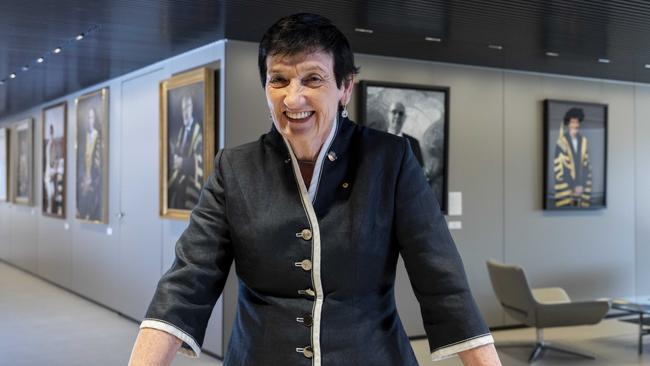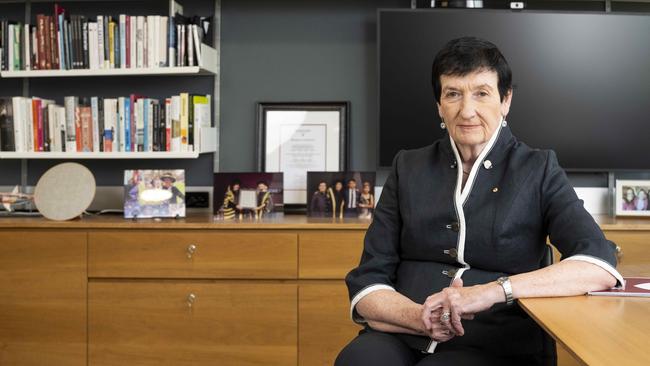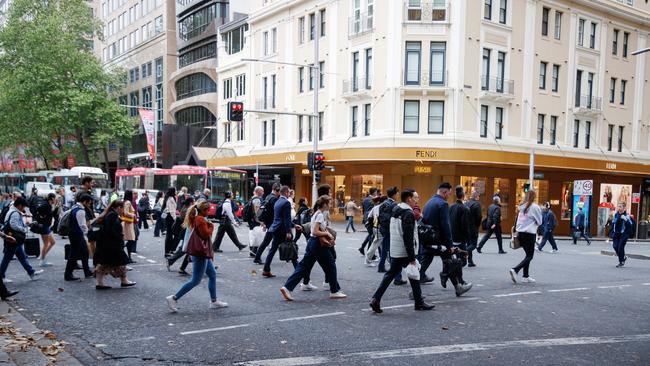Resentment building on struggle street: Westacott
The former head of the Business Council of Australia, Jennifer Westacott, says the nation risks a ‘contagion’ of anger and resentment unless it addresses its failings towards middle-class and working Australians.

The former head of the Business Council of Australia, Jennifer Westacott, says the nation risks a “contagion” of anger and resentment unless it addresses its failings towards middle-class and working Australians.
Now chancellor at the University of Western Sydney, she says many people who are just “grinding out their lives” have long been missing from the national conversation.
“There are people out there whose top-of-mind issues are not the big progressive issues, who just want to get their mortgage paid, or their rent paid, or their electricity paid,” she said.
“Their daily existence is a kind of survival. It’s not living. It’s a grind.
“Everyone understands we’ve got a cost of living crisis, but this group of people who grind it out have been excluded from many of the conversations, and the conversations are always the deficit conversation: ‘Well, we’ll try and help you just meet your costs.’
“Well, these people want more. They want an aspirational conversation about getting ahead. They don’t want to just catch up, they want to get ahead. People want to do more than just pay their bills and survive.”

In an exclusive interview with The Australian ahead of a speech at the Sydney Opera House on Wednesday, Ms Westacott drew on her difficult childhood to urge structural reform, saying: “At its core, we owe this to younger Australians, whose aspirations will be critical to turning the page.”
Ms Westacott, who has had a stellar career in the public and private sectors, has rarely spoken about growing up in “highly stigmatised” public housing in the Blue Mountains but will draw on that experience in a speech at a Sydney Women’s Fund event to salute her achievements. The fund was set up in 2008 to increase gender equity and has funded more than $13m in programs to support Sydney women and their families.
“My family were low-income people, and our home was violent,” Ms Westacott will tell the group. “My parents had jobs, not careers. It seemed that every bill, every rent payment, every major event like a birthday or Christmas was a struggle, that no matter how hard they tried, for whatever set of reasons, they couldn’t get ahead. These unrelenting challenges built a sense of resentment and anger. I know how destructive that can be, and I fear it will be a contagion in this country if we don’t act.”
Ms Westacott’s parents, who later separated, worked in unskilled jobs: “Every weekend they shopped what they could afford, they cleaned, they mowed, and every Sunday afternoon Dad would go and queue up to get his weekly (train) ticket because he had to get up at four o’clock in the morning. He needed that weekly ticket on the Sunday afternoon so he could just get straight on the train.”
Today she sees that lengthy daily commute for people caught in “the great unfairness in Sydney’s west”, with “the best jobs, the good jobs, located in the northern and eastern parts of Sydney”. She said large-scale housing developments in previous years in the western suburbs of the city had not been matched by an industrial strategy around jobs and in turn had led to a “big wage equity deficit”. Governments understood this better now, but progress was slow.
More generally, Ms Westacott warned that without tax and other changes “we are sleepwalking into lower living standards”.

“I don’t think there’s any doubt higher wages come from a more productive economy,” she said. “We know the checklist about making the economy more productive, but we haven’t taken the decisions to make ourselves more competitive. Two things that other countries have done, we wouldn’t do – we wouldn’t look at broadening the tax system by changing the consumption tax, and we won’t deal with company tax. We have not invested properly in the school system; we have spent money on per capita allocations without fixing teacher quality. We’ve not looked at the curriculum.
“We’ve just got into a malaise of not doing the big, hard things, and now we’re just going to sleepwalk into lower living standards. We’re not going to have a crisis –it’ll be a slow decline, and it will be a relative decline, not an absolute decline. It’s like what we could have been versus what we’re going to be.
“I always thought Trump was going to be president in 2016 because I’ve been in America, and I used to talk to a lot of people and their lives were just grind … It’s the promise of hope, not the promise of deficit, that makes sense.”
Ms Westacott, who was CEO of the BCA from 2011 to 2023, said Australians were often willing to blame corporates. “Whenever the banks make big profits, you see particularly the Greens come out and just slam that. Well, be in a society where banks are losing money, and see how that works for people, see the kind of social services you can afford. Where would we be over the last decade without the mining sector, plus students?”
Ms Westacott said the national conversation about Indigenous Australian had stalled after the failed voice referendum: “My nervousness has always been that we would retreat into doing nothing, as opposed to what I think needs to happen, which is huge innovation and huge change in the way Indigenous services (operate) – education, health, remote communities. That is about getting a bit more self-determination, but it’s also hugely about training, job creation, economic development, about utilising the estate that’s come from land title more efficiently.”
But she said that “we’re now not allowed” to talk about Indigenous services, as if there was no “authorisation” to have tough conversations.
“What was the point of having the conversation about the voice if we’re now not going to give voice to doing something about these long-term, systemic problems that require practical – but also a bit of creative – thinking? That conversation just seems to have gone, but the issues haven’t gone away.”






To join the conversation, please log in. Don't have an account? Register
Join the conversation, you are commenting as Logout